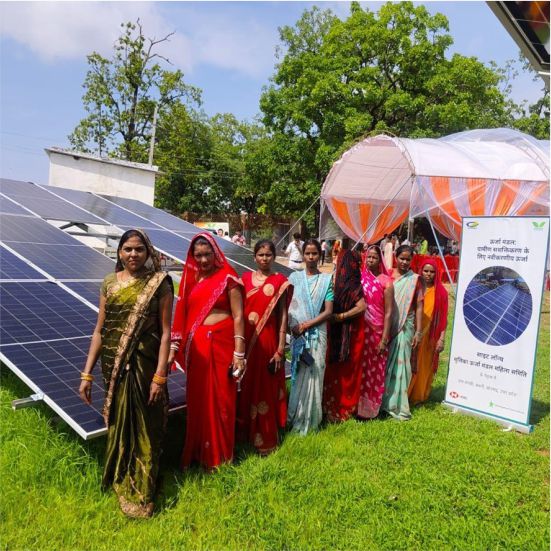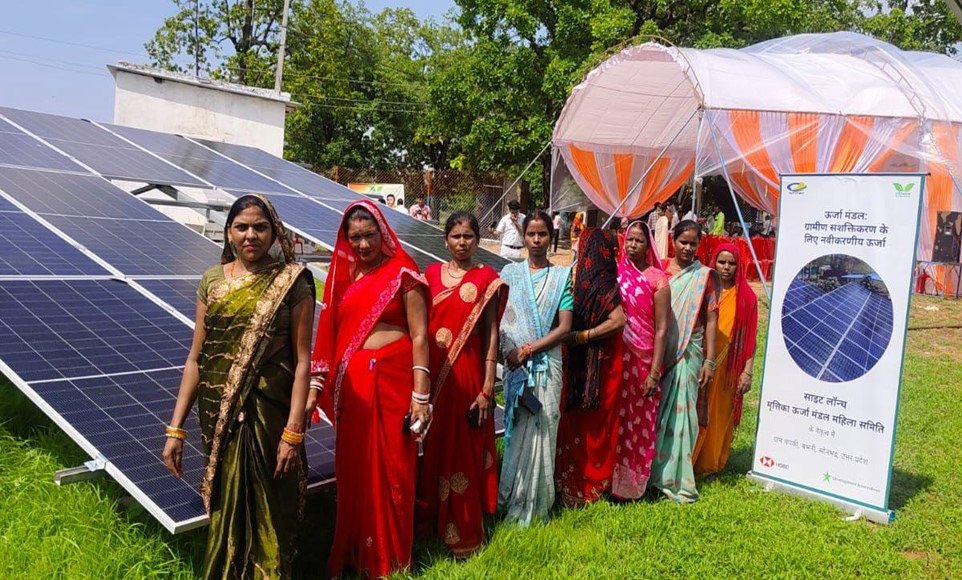
In June 2025, the Urja Mandala model took a major leap forward with the launch of two new solar mini-grids - 40kWp in Mirzapur and 30kWp in Sonbhadra. These decentralised, community-led energy systems are putting women at the center of clean energy transitions, supported by HSBC and local leadership.
#JustTransition

The newly launched mini-grids in Uttar Pradesh stand as a symbol of local innovation and a strong pathway toward just energy transition
In June 2025, Development Alternatives inaugurated two new solar mini-grids of 40kWp and 30kWp capacity in Mirzapur and Sonbhadra districts of Uttar Pradesh under its Urja Mandala project.
At the heart of the Urja Mandala model is a powerful idea: energy democracy. Women from the community take charge of managing, storing, and distributing solar power to local households and businesses. In doing so, they are enabling reliable electricity access, generating livelihoods, boosting resilience, and building local climate leadership.
Backed by HSBC, and in collaboration with local institutions, these mini-grids are part of a larger strategy to make clean energy transitions just and community-owned. With 100+ women trained to operate and oversee energy enterprises, the model is paving the way for rural socio-economic development powered by renewable energy.
Speaking at the launch in Semara Baraho, Hon’ble MP Rama Shankar Singh Patel lauded the initiative: “These women are pioneers of change. They are showing the world how clean energy, when rooted in community and ownership, can drive true empowerment.”
Want to co-create the future of clean, inclusive energy? Write to us at urjamandala@devalt.org